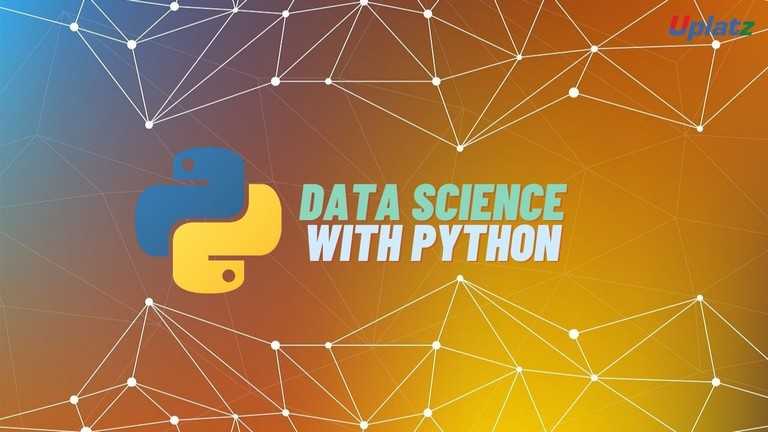Analytics Engineer Career Path
Master modern data modeling, transformation, and analytics engineering with cloud tools and business-ready data pipelines Price Match Guarantee
Full Lifetime Access
Access on any Device
Technical Support
Secure Checkout
Course Completion Certificate
Price Match Guarantee
Full Lifetime Access
Access on any Device
Technical Support
Secure Checkout
Course Completion Certificate
 92% Started a new career
BUY THIS COURSE (
92% Started a new career
BUY THIS COURSE (USD 45 USD 139 )-
 86% Got a pay increase and promotion
86% Got a pay increase and promotion
Students also bought -
-

- Data Science with Python
- 45 Hours
- USD 12
- 2931 Learners
-

- Career Path - Business Analyst
- 120 Hours
- USD 45
- 612 Learners
-

- Career Path - Data Architect
- 300 Hours
- USD 45
- 3310 Learners

Analytics Engineer Career Path – Self-Paced Online Course
Empower your data career with this self-paced course that prepares you to become an Analytics Engineer—a hybrid role at the intersection of data engineering and analytics. Through expert-led pre-recorded video lessons and hands-on labs, this course provides practical knowledge in transforming raw data into business-ready models that drive decision-making.
Analytics Engineers play a crucial role in enabling efficient, scalable, and trustworthy data pipelines using tools from the modern data stack such as dbt, Snowflake, BigQuery, and cloud data platforms. You’ll gain the skills to work with structured data, automate transformations, build semantic layers, and collaborate with data analysts, scientists, and business teams.
This course is ideal for aspiring Analytics Engineers, Data Analysts transitioning into engineering roles, and professionals who want to stay ahead in the fast-moving world of data.
Oops! No Video Subscriptions
By the end of this course, learners will be able to:
- Understand the role of an Analytics Engineer and their importance in data-driven organizations
- Learn data modeling best practices (e.g., star schema, normalization, fact/dimension tables)
- Build modular and scalable data pipelines using dbt and SQL
- Work with modern cloud-based data warehouses like Snowflake and BigQuery
- Optimize performance and data transformation workflows
- Collaborate cross-functionally with analysts, engineers, and business stakeholders
- Leverage version control and CI/CD for data pipelines
- Prepare for job interviews and certifications in analytics engineering and modern data stack technologies
Syllabus:
- Introduction to Analytics Engineering
- Role and responsibilities
- Difference between Analytics Engineer, Data Analyst, and Data Engineer
- SQL for Analytics Engineering
- Advanced SQL queries
- Joins, CTEs, window functions, and performance tuning
- Data Modeling Principles
- Star and snowflake schemas
- Fact and dimension tables
- Normalization vs denormalization
- Data Transformation with dbt
- Project setup and dbt core concepts
- Creating models, tests, and documentation
- Version control and dbt best practices
- Working with Cloud Data Warehouses
- Introduction to Snowflake, BigQuery, and Redshift
- Query optimization and storage management
- Building and Automating Data Pipelines
- ETL vs ELT
- Workflow orchestration and scheduling
- Integrating with Airflow or Prefect (overview)
- Testing, Documentation & Governance
- Data quality checks
- Documenting data assets
- Data lineage and compliance basics
- Analytics Engineering in Practice
- Use cases from e-commerce, fintech, and healthcare
- Cross-functional collaboration with data stakeholders
- Career Prep and Interview Success
- Resume and portfolio building
- Interview preparation and mock questions
Upon successful completion of this course, learners will receive a Course Completion Certificate from Uplatz, validating their proficiency in analytics engineering principles, data modeling, and pipeline development using modern tools.
This certification not only helps professionals demonstrate their ability to manage and transform complex data pipelines, but also enhances career prospects in data engineering, analytics, and business intelligence roles. As organizations move to modern cloud-based ecosystems, certified Analytics Engineers are in high demand.
Uplatz’s certificate adds weight to your profile and prepares you for future learning tracks or certifications such as dbt Analytics Engineering Certification, Google Cloud Data Engineer, or Snowflake Data Professional.
Analytics Engineers are becoming essential in modern data teams by enabling scalable and reliable analytics. With the rise of cloud data platforms and real-time decision-making, their role continues to expand.
Career Opportunities Include:
- Analytics Engineer
- Data Modeling Specialist
- Business Intelligence Engineer
- Data Engineer (with analytics focus)
- Data Analyst (Engineering Track)
Industries hiring Analytics Engineers:
Finance, e-commerce, healthcare, logistics, SaaS companies, consulting firms, and any data-driven organization.
Career Advancement Possibilities:
With experience, professionals can move into roles like:
- Data Engineering Manager
- Analytics Manager
- Director of Data Architecture
- Head of Business Intelligence
- Data Product Owner
Analytics Engineers can also specialize in tools from the modern data stack, cloud platforms, or transition into freelance/consulting roles, advising companies on best practices in analytics infrastructure.
This course opens doors to high-impact roles and long-term career growth in the rapidly evolving data landscape.
1. What is the role of an Analytics Engineer?
An Analytics Engineer transforms raw data into structured, analysis-ready formats, builds data models, and ensures data quality for business use.
2. How is an Analytics Engineer different from a Data Engineer?
Data Engineers focus on infrastructure and raw data ingestion, while Analytics Engineers work on transforming data into usable insights using tools like dbt and SQL.
3. What are common data modeling techniques used by Analytics Engineers?
Star schema, snowflake schema, and entity-relationship models are common. These help optimize analytics performance and data organization.
4. What is dbt and why is it important?
dbt (data build tool) is a transformation tool that allows SQL-based data modeling, testing, and documentation, making it central to the modern data stack.
5. How do you ensure data quality in analytics pipelines?
By using data tests (e.g., uniqueness, null checks), schema validation, and continuous integration to detect issues early.
6. What cloud data platforms are used in analytics engineering?
Snowflake, BigQuery, Redshift, and Databricks are popular for scalable, cloud-based data warehousing and analytics.
7. How do Analytics Engineers collaborate with business teams?
They translate business requirements into data models and ensure that analytics dashboards and insights are based on clean, reliable data.
8. What is the ELT process, and how is it different from ETL?
In ELT, raw data is loaded first (Extract and Load), then transformed (Transform) in the warehouse. It suits cloud-based workflows.
9. What version control system is used in analytics engineering?
Git is commonly used to manage dbt project versions, support collaboration, and enable rollback and CI/CD integration.
10. How do you optimize SQL queries in large datasets?
By using proper indexes, avoiding unnecessary joins, using CTEs wisely, and analyzing execution plans to identify bottlenecks.
1. Who should take this course?
Data analysts, aspiring analytics/data engineers, and BI professionals who want to gain hands-on skills in modern data modeling and transformation.
2. Is any prior experience required?
Basic SQL and understanding of data analysis is helpful but not mandatory. The course builds from fundamentals.
3. Does the course teach dbt and cloud platforms?
Yes, it covers dbt in detail and introduces tools like Snowflake, BigQuery, and modern data architecture concepts.
4. What is the course format?
The course is self-paced and includes pre-recorded video lessons, project-based exercises, and guided examples.
5. Will I get a certificate after completing the course?
Yes, a Course Completion Certificate from Uplatz will be awarded to all learners.
6. What kind of support is provided during the course?
Expert Q&A, community support, and access to resources are available through the learning platform.
7. Is the course suitable for career switching?
Absolutely. It's designed to help analysts or engineers pivot into analytics engineering roles.
8. How long will I have access to the course?
You get lifetime access to all course materials.
9. Are there real-world examples in the course?
Yes, case studies and scenarios from industries like fintech, healthcare, and e-commerce are included.
10. Does the course prepare for certifications?
Yes, it prepares you for dbt certification, and foundational cloud certifications relevant to analytics roles.









